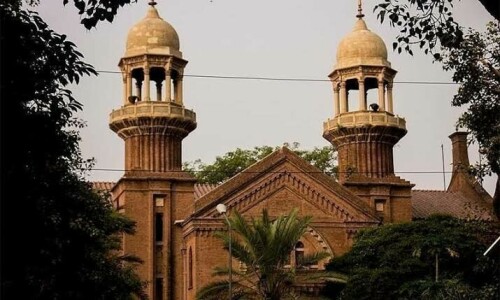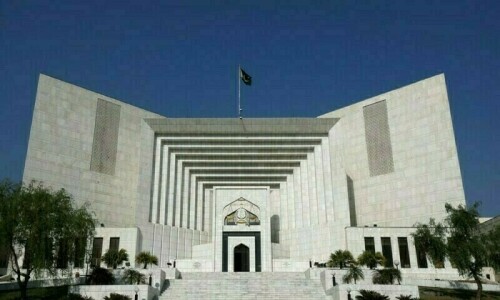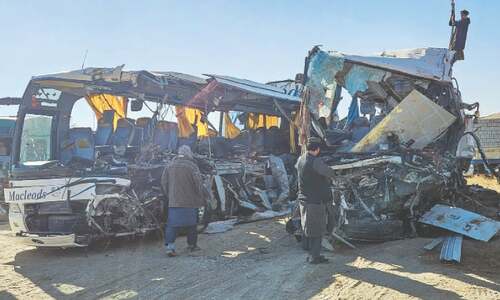 |
KARACHI: Abdullah Hussain, one of the most prominent Urdu novelists and short story writers of the post-independence era, shot to fame with his debut novel, his magnum opus, Udas Naslain, which won the 1963 Adamjee Prize for Literature.
His later works — novels Baagh and Nadaar Loag, novellas Qaid and Raat and collections of short stories Nashaib and Faraib — too, became quite popular among the lovers of Urdu fiction. The Weary Generations is the self-translated English version of Udas Naslain.
Born in 1931 to the fifth wife of an excise inspector and small landowner in Gujrat, Punjab, Abdullah Hussain’s real name was Muhammad Khan. Having graduated from Gujrat’s Zameendar College, he worked as a chemist for a cement factory.
Later, Abdullah Hussain went to Canada to obtain a diploma in chemical engineering. He married a medical doctor and they had a son and a daughter. Having stayed in the UK for about 40 years where he ran a pub, Abdullah Hussain returned to Pakistan a few years ago.
Abdullah Hussain’s descriptive style is replete with vivid sensory details, depicting the milieu minutely.
Known for his accurate characterisation, with frequent use of swear words to enhance the effect, Abdullah Hussain is sometimes criticised for describing a scene too coarsely and in a parlance too uncouthly which could offend some readers.
But it made him stand out among the first few Urdu novelists who were undeterred in their realistic portrayal of modern and contemporary sensitivity. His maiden work especially mourns the tragedy of rural Punjab in a sorrowful tone.
Written against the backdrop of the First World War and the events that took place in the run-up to Independence in 1947, Udas Naslain captures the essence of the social and political upheaval that the subcontinent was passing through. The question, ‘what did the lost generations get from Independence’ that he had asked in Udas Naslain was answered by himself in his Nashaib — the rat race.
A bit averse to the literary critics and wary of their assessments of his literary merits, Abdullah Hussain had requested critics not to review his novel Nadaar Loag for at least six months after its publication so that ordinary readers would be free to judge the book on their own.
This was, perhaps, a reaction to the criticism he had to bear with after the publication of Udas Naslain. Among other things, he was accused of plagiarising from Qurrat-ul-Ain Hyder’s Aag ka Darya. Hyder herself in her autobiographical work Kaar-e-Jahan Daraaz Hai has pointed out the portions which, according to her, were “copied down” from her memoirs.
But Abdullah Hussain was right when he complained that no serious and detailed study of Udas Naslain had been carried out and most critics had ignored him. But, then, it is, perhaps, in perfect rhythm with the notion that runs throughout most of his works — life is a sad affair.
Published in Dawn, July 5th, 2015
On a mobile phone? Get the Dawn Mobile App: Apple Store | Google Play













































